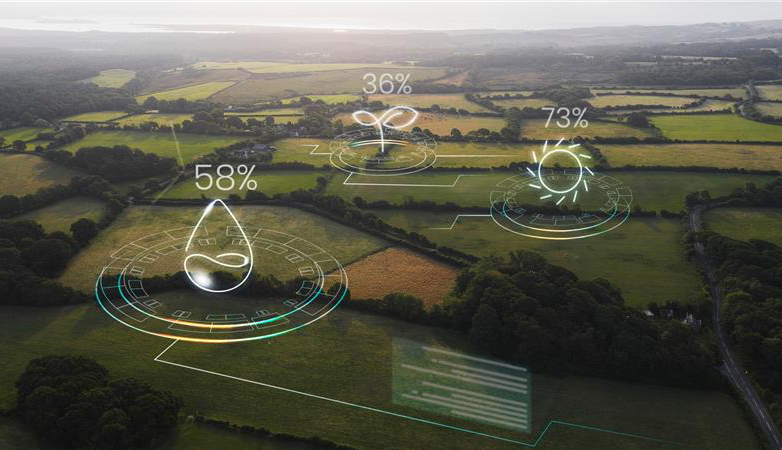ISSA 5000 – A New Era in Sustainability Assurance Standards

ISSA 5000 – A New Era in Sustainability Assurance Standards
ISSA 5000: Exploring the need, objectives, and future of evolving sustainability assurance standards
- Authors
- Last Updated
- Tags
- Last Updated
- Authors
- Last Updated
- Tags
The IAASB approved the exposure draft of the International Standard on Sustainability Assurance, or ISSA 5000, on September 20, 2024. The new ISSA introduces a specific consideration to assurance over sustainability information as demand for strong and transparent sustainability reporting surges. ISSA 5000 is set out to provide explicit guidance for assurance of sustainability information with the aim of aligning the quality of sustainability assurance at par with that of financial audits. In this blog, we shall explore the detailed intricacies of ISSA 5000.
Why is ISSA 5000 needed?
The thrust towards greater assurance for reliable and transparent sustainability reporting is driven by the global spotlight on environmental, social, and governance issues –thus making ISSA 5000 necessary. Now that more information on issues regarding sustainability is reportedly required to be disclosed by organizations-stakeholders, such as investors, regulators, and the public, need assurance of the credibility, comparability, and consistency of such information. While the current standards, like International Standards on Assurance Engagements (ISAE 3000) may be sufficiently broad to apply to the general field of non-financial assurance, the nature of sustainability reporting holds such uniqueness that a higher specification is needed. ISSA 5000 fills the gap by providing the overall framework, which is designed especially for sustainability assurance, thus ensuring that the data the sustainability reporting bases its reports is given equal vigor as financial audits.
ISSA 5000 lays out, around the world, consistent principles and requirements for sustainability assurance, thus providing practitioners with a more precise guide in their evaluation of sustainability risks and materiality/forward-looking statements. This dedicated standard provides for the verification of sustainability information by independent third parties using high ethical and professional standards. Given that sustainability reporting is emerging as the hallmark of corporate accountability, ISSA 5000 assumes an important role building stakeholder trust and confidence within a strict and quality framework for third-party assurance in the evolving landscape of sustainability quality demands.
Core Objectives of ISSA 5000
- ISSA 5000 aims at aligning the quality of sustainability assurance at par with that of financial audits to provide stakeholders with credible, third-party assurance about sustainability information.
- The standard provides worldwide uniform principles and requirements to ensure that sustainability assurance is performed clearly and with comparability between different entities and sectors.
- ISSA 5000 will give stakeholders confidence in the accuracy and reliability of sustainability information through clear guidance on how to measure the materiality of sustainability-specific risks and forward-looking statements.
Evolving Standards: From ISAE 3000 to ISSA 5000 for Sustainability Assurance
Currently, ISAE 3000 (Revised) is applied to all kinds of non-financial assurance engagements including sustainability information, thus it stands for a general framework to provide assurance on data that are not financial. On the GHG statements where there is an obligation of issuing a separate conclusion, ISAE 3410 will be accordingly followed. By contrast, while ISAE 3410 will continue to be applied for assurance on GHG-related information, ISSA 5000 will replace ISAE 3000 for sustainability information engagements going forward. ISAE 3000 shall remain relevant for other non-financial assurance engagements except sustainability.
The envisioned overarching umbrella standard of ISSA 5000 gives very detailed guidance regarding the intricacies of sustainability reporting. Over time, further specialization will be expected to emerge under the umbrella of ISSA 5000 and lead to ever more specificity in relation to critical aspects of sustainability assurance as this new field evolves. This phased form of development will ensure that the standard keeps up with increasingly and evolvingly changing needs for sustainability reporting and assurance.
Key Features of ISSA 5000
- Wide Reach: ISSA 5000 is meant to be used in all assurance engagements where sustainability information is applied, irrespective of format and reporting approach.
- Framework-Agnostic: The standard is principles-based and, therefore framework-agnostic, so that it can be applied against all the sustainability topics, reporting frameworks and mechanisms.
- Scalable: It applies in assurance practices at an entity of any size or complexity to offer the maximum level of flexibility for users applying in a very wide range of sustainability engagements.
- Practitioner-Agnostic: ISSA 5000 is practitioner agnostic and can be applied by any assurance practitioner. Such assurance practitioner can be an individual coming from an audit firm, sustainability specialist or any other professional background. Nevertheless, such practitioners must meet all applicable ethical requirements, including those developed by the IESBA Code of Ethics, as well as conduct their business within firms that have in place a quality management system and are aligned with IAASB quality standards.
- Materiality and Risk: ISSA 5000 provides guidance on the materiality, which is sustainability-specific and more focused on disclosures rather than the whole of the sustainability report and builds on the prior sustainability-specific risks assessment.
- More Specific: ISSA 5000 is quite specific compared to ISAE 3000 as it details procedures for limited and reasonable assurance, mainly concerning estimations of sustainability as well as forward-looking statements.
Implementation Timeline and Phased Approach
- Date of Applicability: ISSA 5000 is applicable for annual periods starting on or after December 15, 2026, although it can be adopted earlier on a voluntary basis.
- Gradual Evolution: The IAASB will be taking a step-by-step approach in terms of developing the sustainability assurance standards. While there would be a general overarching standard, that is, ISSA 5000; the detailed guidance and standards would emerge as sustainability reporting progresses.
Future Developments
The official ISSA 5000 publication is expected in December 2024, while detailed guidance and application materials are expected in January 2025. Such materials will be helpful for the practitioners embracing the standard and clears the way through which it should be applied for different kinds of sustainability engagements.
Conclusion
ISSA 5000 is an overdue standard, capturing, for the first time in history, the special complexities of sustainability information – a critical milestone in assurance of sustainability. A globally consistent, principles-based framework of ISSA 5000 will ensure that sustainability data is reliable, transparent, and comparable to promote informed decisions by stakeholders and, in turn, encourage accountability in sustainability reporting.
Why Choose InCorp Global?
At InCorp, we undertake the services of ESG and Risk Management solutions under one roof. Our trained multi-disciplinary team makes deep assessments to identify possible ESG risks as well as opportunities. With customized solutions, you can attain the sustainability you want. For more information about our services, you could write to us at info@incorpadvisory.in or reach out to (+91) 77380 66622.
Authored by:
Muskaan Jain | Sustainability & ESG
Frequently Asked Questions
ISSA 5000 is framework neutral and could be applied to assurance of IFRS S1 and S2, EU's CSRD, GRI, TCFD, BRSR, etc.
ISSA 5000 is practitioner-agnostic and would therefore permit assurance to be provided by people with quite differing backgrounds, such as audit firms or sustainability specialists. Practitioners would need, however, to meet all the ethical standards, including the IESBA Code of Ethics, and operate within firms that support IAASB standards on quality management systems.
Yes, ISAE 3410 will be applicable when there is a need for a separate assurance report on greenhouse gas statements. On the other hand, ISAE 3000 will apply to all other non-financial assurance engagements except for sustainability assurance.
ISSA 5000 is applicable to assurance engagements on sustainability information reported on or after December 15, 2026. An earlier application of this ISSA has been permitted.
Share
Share







































































